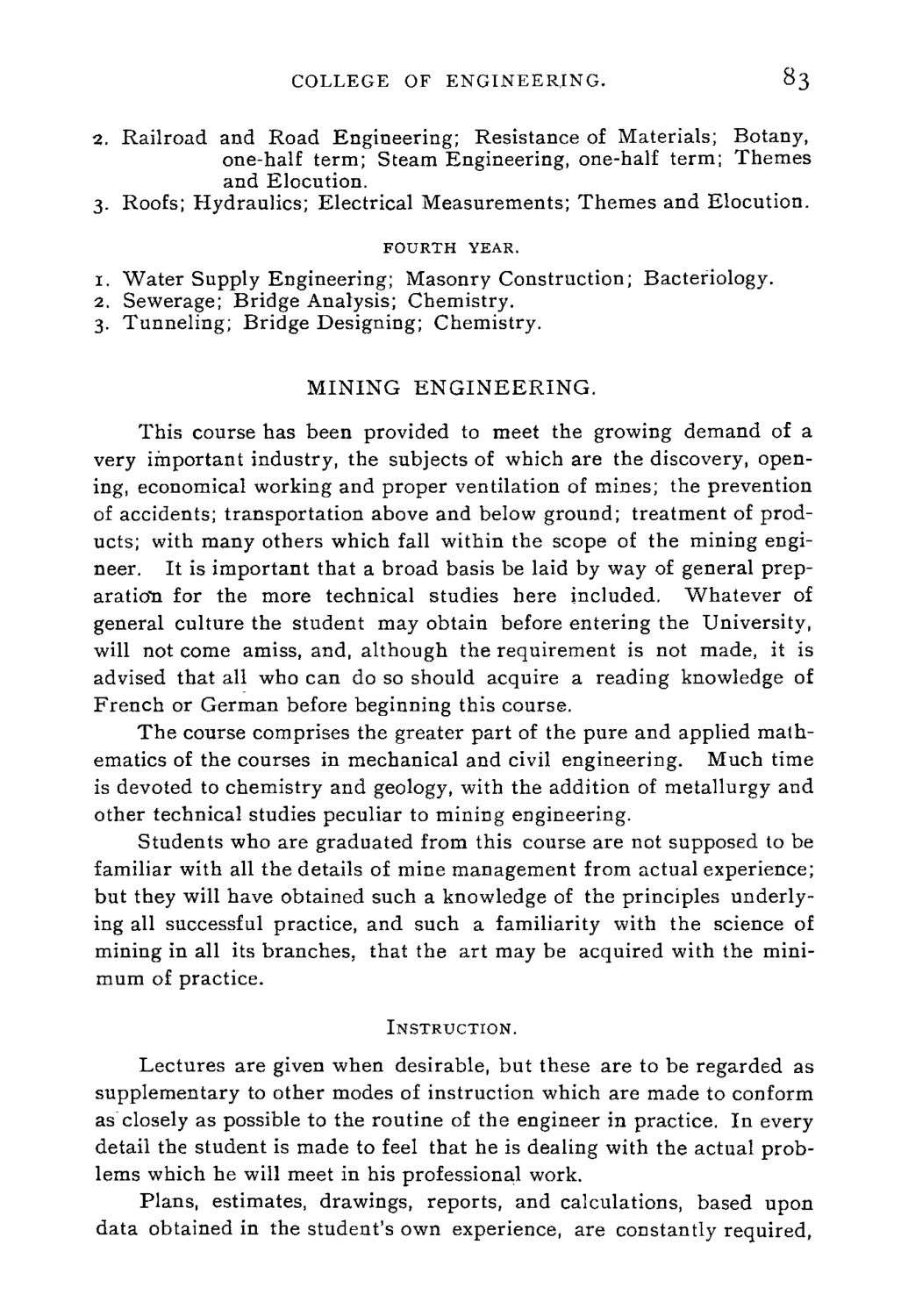| |
| |
Caption: Course Catalog - 1892-1893
This is a reduced-resolution page image for fast online browsing.

EXTRACTED TEXT FROM PAGE:
COLLEGE OF ENGINEERING. 83 2. Railroad and Road Engineering; Resistance of Materials; Botany, one-half term; Steam Engineering, one-half term; Themes and Elocution. 3. Roofs; Hydraulics; Electrical Measurements; Themes and Elocution. FOURTH YEAR. 1. Water Supply Engineering; Masonry Construction; Bacteriology. 2. Sewerage; Bridge Analysis; Chemistry. 3. Tunneling; Bridge Designing; Chemistry. MINING ENGINEERING. This course has been provided to meet the growing demand of a very important industry, the subjects of which are the discovery, opening, economical working and proper ventilation of mines; the prevention of accidents; transportation above and below ground; treatment of products; with many others which fall within the scope of the mining engineer. It is important that a broad basis be laid by way of general preparation for the more technical studies here included. Whatever of general culture the student may obtain before entering the University, will not come amiss, and, although the requirement is not made, it is advised that all who can do so should acquire a reading knowledge of French or German before heginning this course. The course comprises the greater part of the pure and applied mathematics of the courses in mechanical and civil engineering. Much time is devoted to chemistry and geology, with the addition of metallurgy and other technical studies peculiar to mining engineering. Students who are graduated from this course are not supposed to be familiar with all the details of mine management from actual experience; but they will have obtained such a knowledge of the principles underlying all successful practice, and such a familiarity with the science of mining in all its branches, that the art may be acquired with the minimum of practice. INSTRUCTION. Lectures are given when desirable, but these are to be regarded as supplementary to other modes of instruction which are made to conform as closely as possible to the routine of the engineer in practice. In every detail the student is made to feel that he is dealing with the actual problems which he will meet in his professional work. Plans, estimates, drawings, reports, and calculations, based upon data obtained in the student's own experience, are constantly required,
| |